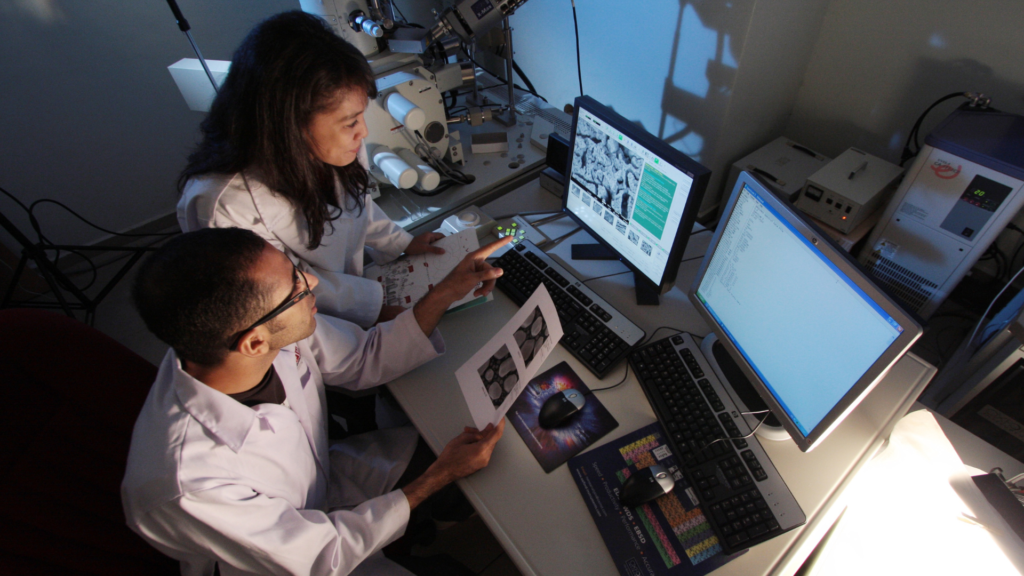Science is a field that offers endless possibilities and opportunities to those who are willing to work hard and stay focused on their goals. Whether you want to be a scientist, research new technologies, or develop innovative solutions for environmental and social issues, the potential career paths for those with an interest in science are numerous and varied.
But how do you turn your passion into a successful career? In this blog post, we’ll take a look at what it takes to start a career in science, from developing an appropriate skill set to finding the right job opportunities. You don’t need to be an Einstein to make your dreams come true: you just need the right attitude and the right direction!
What Types of Careers Are Available in Science?
There are many types of careers available in science. Some scientists work in research and development, looking for new ways to improve products or create new ones. Others work in academia, teaching at colleges and universities. Many scientists also work in government, providing advice on scientific and technological issues. There are also many opportunities for scientists to work in the private sector, developing products for companies or providing consulting services.
What Are the Requirements for a Career in Science?
There are many different types of careers in science, but most of them have certain requirements in common. To start a career in science, you will need at least a bachelor’s degree in a scientific field from an accredited university. Many careers in science also require advanced degrees, such as a master’s or doctorate. In addition to academic credentials, you will need to have strong analytical and problem-solving skills, as well as the ability to communicate complex scientific concepts clearly and concisely.
What Education and Skills Are Needed for a Career in Science?
A career in science can be extremely rewarding, but it takes a lot of hard work and dedication. To succeed in this field, you need to have a strong foundation in the basic principles of science. You should also be able to think critically and solve problems effectively. In addition to a strong scientific foundation, you will also need to develop excellent communication and writing skills. These skills will be essential for presenting your research findings to colleagues and clients. You should also be comfortable working with technology, as many scientific jobs now involve using computers and other types of technology.
Finally, a successful career in science requires an advanced degree. Depending on your field of study, this could be a Bachelor’s, Master’s, or Doctorate. You will also need to have experience in the specific area you plan to pursue. This could include research or practical experience gained through internships and other job opportunities.
How to Get Started in a Career in Science?
There are many different paths to a career in science. Some people start with a specific goal in mind, while others find their way into the field more gradually. No matter what your background or interests are, there is a place for you in science. If you’re not sure where to start, here are a few suggestions:
Get a Degree in Science
A bachelor’s degree in any scientific discipline will give you the basic foundation you need to begin your career. From there, you can specialize in the area that interests you most.
Start working in a Lab
Many scientists get their start by working as research assistants or technicians in laboratories. This is a great way to gain experience and learn about the day-to-day work of a scientist.
Get Involved in Citizen Science Projects
There are many opportunities for non-scientists to get involved in scientific research, often through citizen science initiatives. This is a great way to dip your toe into the world of science and see if it’s something you might be interested in pursuing further.
Read Popular Science Books and Blogs
A love of learning is one of the most important qualities of any scientist. Keeping up with the latest discoveries and advancements in your field will help you stay excited and motivated throughout your career.
Follow Scientific Organizations
Organizations such as the American Association for the Advancement of Science and the National Academy of Sciences offer great resources for staying up to date with what’s going on in science, as well as job postings and other opportunities.
Attend Conferences
Conferences are great places to network, learn about the latest developments, and meet people in your field. Even if you don’t have a formal role at the conference, you can still go and mingle with other professionals.
Starting a career in science can be an exciting journey. With the right education, research experience, and professional networks, you can find success in this rewarding field. Remember to stay organized and patient as you work toward your goals; with dedication and hard work, you will soon be on the path to a successful scientific career!




